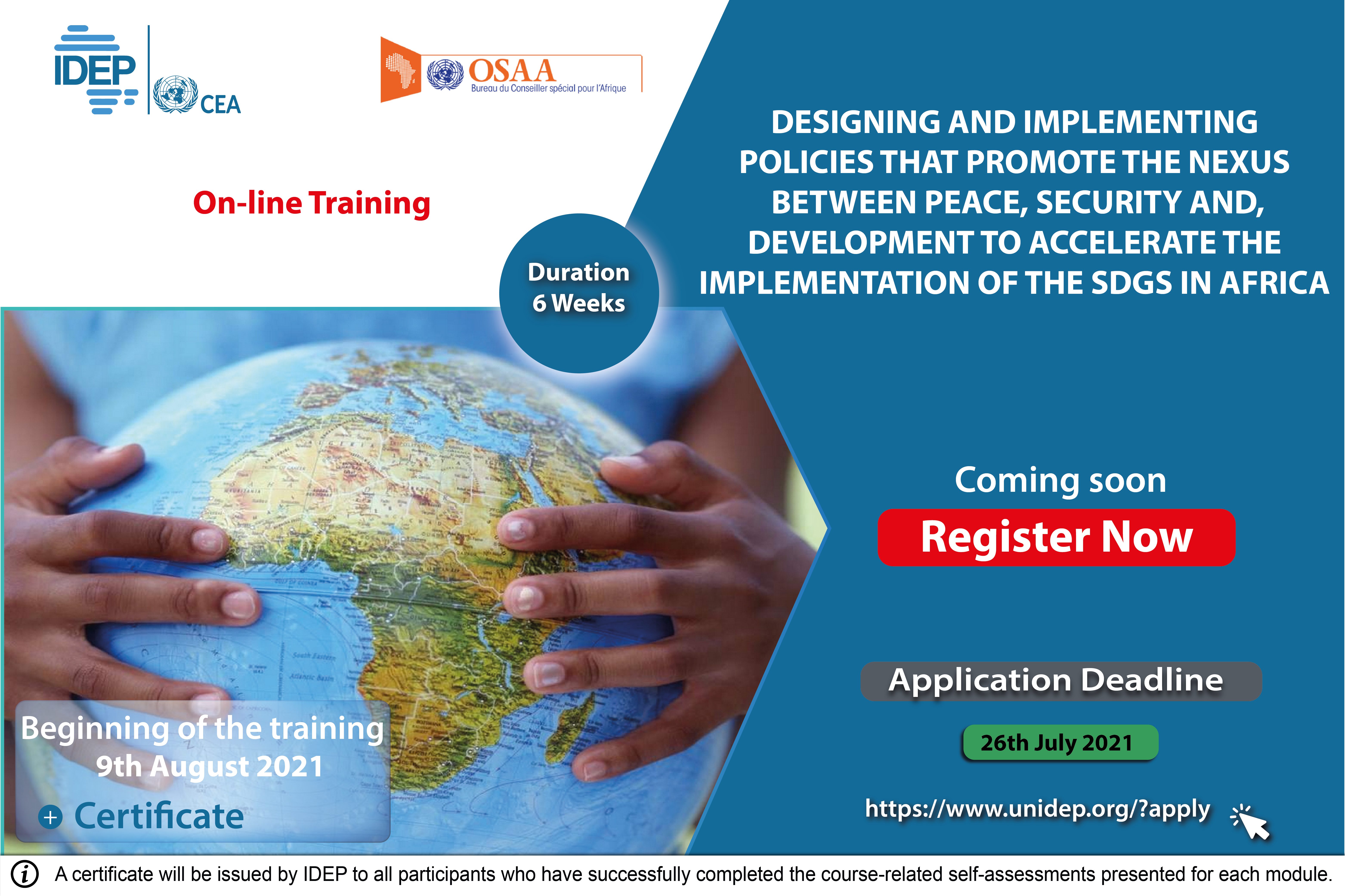Designing and Implementing Policies that Promote the Nexus between peace, Security and, Developement to accelerate the Implementation of the SDGs in Africa
PROGRAM RATIONALE
Countries in fragility and conflict lag significantly behind in meeting internationally agreed development goals. Finding effective ways to help societies to avoid lapse and relapse into conflict is critical for global security and development dimensions.
So far, the global, regional, sub-regional and national systems to address conflict has been focusing on preventing interstate war and, increasingly, intrastate conflict. But the changing nature of conflicts and crisis calls for a more comprehensive and integrated approach in identifying solutions. Conflict prevention offers a great opportunity to address these new challenges. The nexus peace, security and development is the approach that global, regional and national organization could be applied to ensure conflict prevention. Strong institutions are critical to nurture a peace, socio-economic inclusivity, justice and rule of law and good governance in a country. In this context, capacity building and strengthening the institutions are the solutions that can support conflict prevention in Africa as stressed in the UN and World Bank joint study on the pathways for peace.
Therefore, achieving sustainable development in all African countries requires a balanced approach addressing both dimensions of peace, security and development. The close interlinkages between human rights, humanitarian affairs, development and peace and security call for more integrated and systematic approaches to advance development across the world. With the adoption of the 2030 Agenda for Sustainable Development and the African Union Agenda 2063, all Member States have recognised the need to integrate the nexus between peace, security, humanitarian affairs and human rights and sustainable development in their development framework. Indeed, Sustainable Development Goal 16 which aims at ending violence, promoting inclusive societies, providing access to justice for all and building effective, accountable and inclusive institutions at all levels is necessary for creating conditions for sustainable development. Aspiration 4 of the African Union Agenda 2063 similarly emphasizes the critical role of peace, security and stability for sustainable development and inclusive growth to prevail in Africa. Further, African leaders have declared 2020 as the AU year on Silencing the Guns in Africa by 2020 in support of the AU flagship initiative of the same name. This initiative envisages the critical role of peace, security and prevention for the promotion of inclusive growth and sustainable development and was decided by African heads of state and government to transform into a decade long initiative until 2030.
LEARNING OBJECTIVES
The course aims to strengthen the capacity of African policy makers to design and implement policies that promote the nexus between peace, security, human rights, humanitarian affairs and development for an accelerated implementation of the Sustainable Development Goals (SDGs).
The course will raise awareness on the nexus between peace, security, development and its implications towards the implementation of the SDGs and Agenda 2063.
The course will provide the rationale and evidence on the need to adopt an integrated approach in policy design and implementation along the nexus with a view to accelerate the implementation of the SDGs and Agenda 2063 especially SDG17.
The course will provide scenarios to showcase best practices from Africa and around the world as well as challenges to implementing such an integrated approach between peace, security and development, humanitarian and human rights.
The course will provide the tools to reinforce an integrated approach in policy design and implementation along the nexus peace, security, development and prosperity.
The course will explore policy making and mid and long-term planning as well as budgeting tools that can help to design integrated approach on the nexus.
